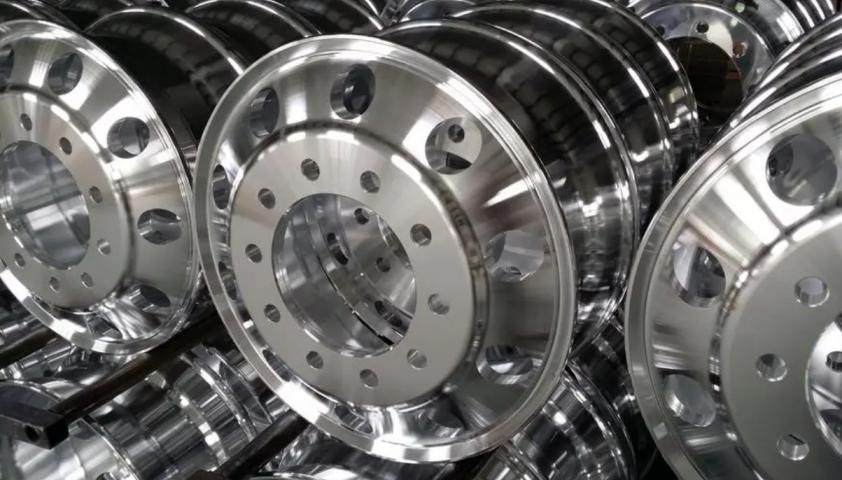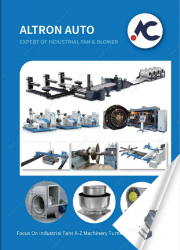Spinning Forming: One-Stop Solutions & Fast Delivery
Spinning forming is a metalworking process used to create parts from flat sheet metal. This process is often used in wheel manufacturing companies, automotive industries, and other sectors requiring high-quality hubwheels produced from casting or forging processes.
The spinning forming process begins with a flat, circular sheet or disc of metal, although other shapes are possible as well. The material selection will depend on the application and desired properties of the finished part. Common materials include aluminum, stainless steel, copper, and brass due to their ductility.
After being cut to size, these pieces are placed into a spinning drum which spins them around at high speeds while an operator uses a special tool to shape them into the desired form. The operator can manipulate both the shape and thickness of the material during this process. This results in extremely accurate parts that can be made with complex contours or curves that would be difficult or impossible by other manufacturing techniques such as die casting or injection molding.
Market Demand for Spinning Forming
The market for wheel manufacturing has seen a steady increase in demand for high-quality hub wheels produced through spinning forming. There are several key reasons behind this surge in popularity:
1. Spinning Forming: Precision and Consistency
One of the primary market needs is precision. Automotive and aerospace industries, in particular, require hub wheels that meet stringent standards for quality and safety. Spinning forming offers unparalleled precision and consistency, ensuring that each wheel produced adheres to the exact specifications required.
2. Spinning Forming: Material Efficiency
Efficiency is another driving factor. Spinning forming minimizes material wastage compared to traditional methods, making it an environmentally friendly and cost-effective choice. Manufacturers can optimize their resource utilization, reducing production costs without compromising on quality.
3. Spinning Forming: Versatility
Spinning forming is versatile, accommodating various materials such as aluminum, steel, and alloy composites. This flexibility allows manufacturers to cater to diverse industry needs without investing in multiple specialized machines.
The Stages of Spinning Forming
1. Forming:
At the heart of spinning forming lies the initial forming stage. As the blank is spun, it gradually takes on the shape of the spinning tool. Here, skilled operators play a pivotal role in controlling the machine to ensure that every detail aligns with the intended design. This stage is a delicate dance between human expertise and machine precision.
2. Trimming and Finishing:
Once the desired shape is achieved, the next step is trimming and finishing. Excess material is carefully removed to create a clean and polished edge. Depending on the specifics of the project, this phase might involve supplementary tools or processes, such as cutting, punching, or machining. The result is a refined product with impeccable quality.
3. Quality Control:
Quality is the cornerstone of any manufacturing process, and spin molding is no exception. Strict quality control measures are employed to ensure that molded parts meet specified dimensions and tolerances. This phase employs measuring tools, visual inspection, and other rigorous quality control procedures to guarantee that the end product meets the highest standards.
The Hub Wheel Spinning Forming Machine: Crafting Excellence
The hub wheel spinning forming machine is a marvel of modern engineering, meticulously designed for spinning cast or forged hub wheels. Its primary purpose is to cater to the needs of wheel manufacturing companies and the automotive industry, ensuring the production of high-quality, durable hub wheels. This advanced equipment plays a pivotal role in shaping the future of wheel manufacturing.

1. Spinning Forming: The Material Journey
The journey of creating a hub wheel through spinning forming begins with the selection of the raw material. Commonly used materials include aluminum, stainless steel, copper, and brass due to their exceptional ductility. These materials provide the necessary malleability to undergo the spinning process, resulting in hub wheels that exhibit both strength and aesthetics.
2. Spinning Forming: Mastering the Tools
At the heart of spinning forming lies the spinning lathe. This vital piece of equipment is equipped with a spinning mandrel and a spinning tool. The spinning mandrel holds the workpiece securely, while the spinning tool shapes the material. The design of the tooling is tailored to achieve the desired final shape of the hub wheel, ensuring precision and accuracy in every detail.
3. Spinning Forming — Blank Preparation: The Foundation of Precision
Before the spinning process can commence, the initial metal blank must be prepared. This blank typically starts as a flat, circular sheet or disc of metal. Various methods, such as shearing or punching, are employed to cut the blank into a circular shape that matches the diameter of the mandrel on the spinning lathe. This meticulous blank preparation sets the foundation for a flawless spinning process.
ALTRON: A Leading Name in Spinning Forming Machines
When it comes to hub wheel spinning machines, ALTRON stands as a prominent manufacturer known for its dedication to innovation and excellence. With a legacy of delivering high-performance machinery, ALTRON has earned the trust of industries worldwide.
1. Spinning Forming: Cutting-Edge Technology
ALTRON’s hub wheel spinning machines are a testament to cutting-edge technology. Their machines are designed with precision and efficiency in mind, ensuring that every hub wheel produced meets the highest industry standards. ALTRON’s commitment to innovation shines through in the craftsmanship of their equipment.
2. Spinning Forming: Unmatched Expertise
With years of expertise in the field, ALTRON’s team comprises industry veterans who understand the unique challenges and requirements of spinning forming. This knowledge is translated into the design and manufacturing of their machines, making them reliable assets for businesses aiming to excel in hub wheel production.
3. Spinning Forming: Superior Quality Assurance
Quality assurance is at the core of ALTRON’s philosophy. Their hub wheel spinning machines undergo rigorous testing and inspection to ensure flawless performance. ALTRON’s dedication to delivering superior products has made it a trusted partner for companies looking to achieve excellence in wheel manufacturing.
Conclusion
Spinning forming is a remarkable process that has reshaped the wheel manufacturing industry. With the aid of advanced hub wheel spinning machines like those offered by ALTRON, businesses can craft hub wheels that are not only aesthetically pleasing but also exhibit exceptional strength and durability. As technology continues to advance, we can expect even greater precision and efficiency in the world of spinning forming, setting new standards for industrial excellence.


